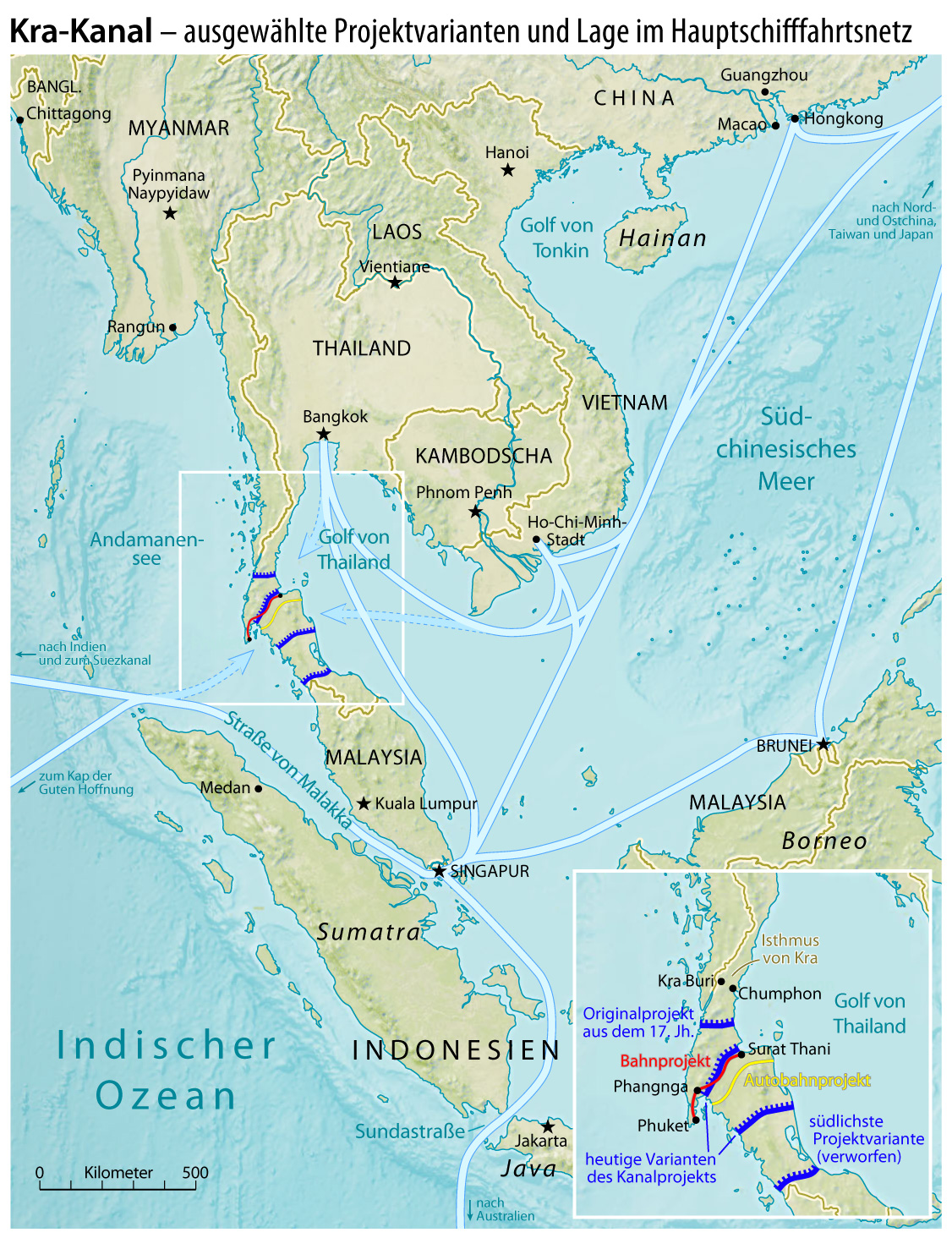A canal in the Kra peninsula of Thailand is a project that has been proposed on and off for more than four centuries. The point of this thread is to explore how one could get the French to attempt to build one during the 1890s.
Ferdinand de Lesseps had attempted to survey the area and was hindered by the Thai king in 1882 according to wikipedia. IOTL, the French fought a war with the Kingdom of Siam on a flimsy pretext in order to expand French Indochina, and signed a treaty in 1893 that guaranteed that. How plausible would it be that the French ask for, and get, the rights to build such a canal through an alternate 1893 treaty?
IOTL, the British had made clear that they would not like anything to diminish the importance of Singapore. There had been negotiations between the British and the Thais dating back to 1891 on some sort of a security treaty that would also settle the borders of British Malaya, culminating in a signed treaty in 1896, as explored here. So it is reasonable to assume that Britain would actively fight against the French on this, at least diplomatically, and that the French would be aware of this. Can the French go ahead with this and more or less antagonise the British?
I suppose that if the Panama Canal project is not considered such a fiasco, and if de Lesseps still holds some influence and can be persuaded to promote this with contacts in the French government, then maybe this could be enough to start with. Of course having the Panama Canal project not be considered a fiasco is... difficult. If the French do manage this, can they get it done? Is it reasonable to expect that they would be able to pull this off without some kind of conflict with the British? Could this have bad implications for the Fashoda crisis a few years down the line?
Is this generally something within the realm of possibility? If so, how could it go down? If the French manage to succeed here, is this a net benefit for them?
Ferdinand de Lesseps had attempted to survey the area and was hindered by the Thai king in 1882 according to wikipedia. IOTL, the French fought a war with the Kingdom of Siam on a flimsy pretext in order to expand French Indochina, and signed a treaty in 1893 that guaranteed that. How plausible would it be that the French ask for, and get, the rights to build such a canal through an alternate 1893 treaty?
IOTL, the British had made clear that they would not like anything to diminish the importance of Singapore. There had been negotiations between the British and the Thais dating back to 1891 on some sort of a security treaty that would also settle the borders of British Malaya, culminating in a signed treaty in 1896, as explored here. So it is reasonable to assume that Britain would actively fight against the French on this, at least diplomatically, and that the French would be aware of this. Can the French go ahead with this and more or less antagonise the British?
I suppose that if the Panama Canal project is not considered such a fiasco, and if de Lesseps still holds some influence and can be persuaded to promote this with contacts in the French government, then maybe this could be enough to start with. Of course having the Panama Canal project not be considered a fiasco is... difficult. If the French do manage this, can they get it done? Is it reasonable to expect that they would be able to pull this off without some kind of conflict with the British? Could this have bad implications for the Fashoda crisis a few years down the line?
Is this generally something within the realm of possibility? If so, how could it go down? If the French manage to succeed here, is this a net benefit for them?
